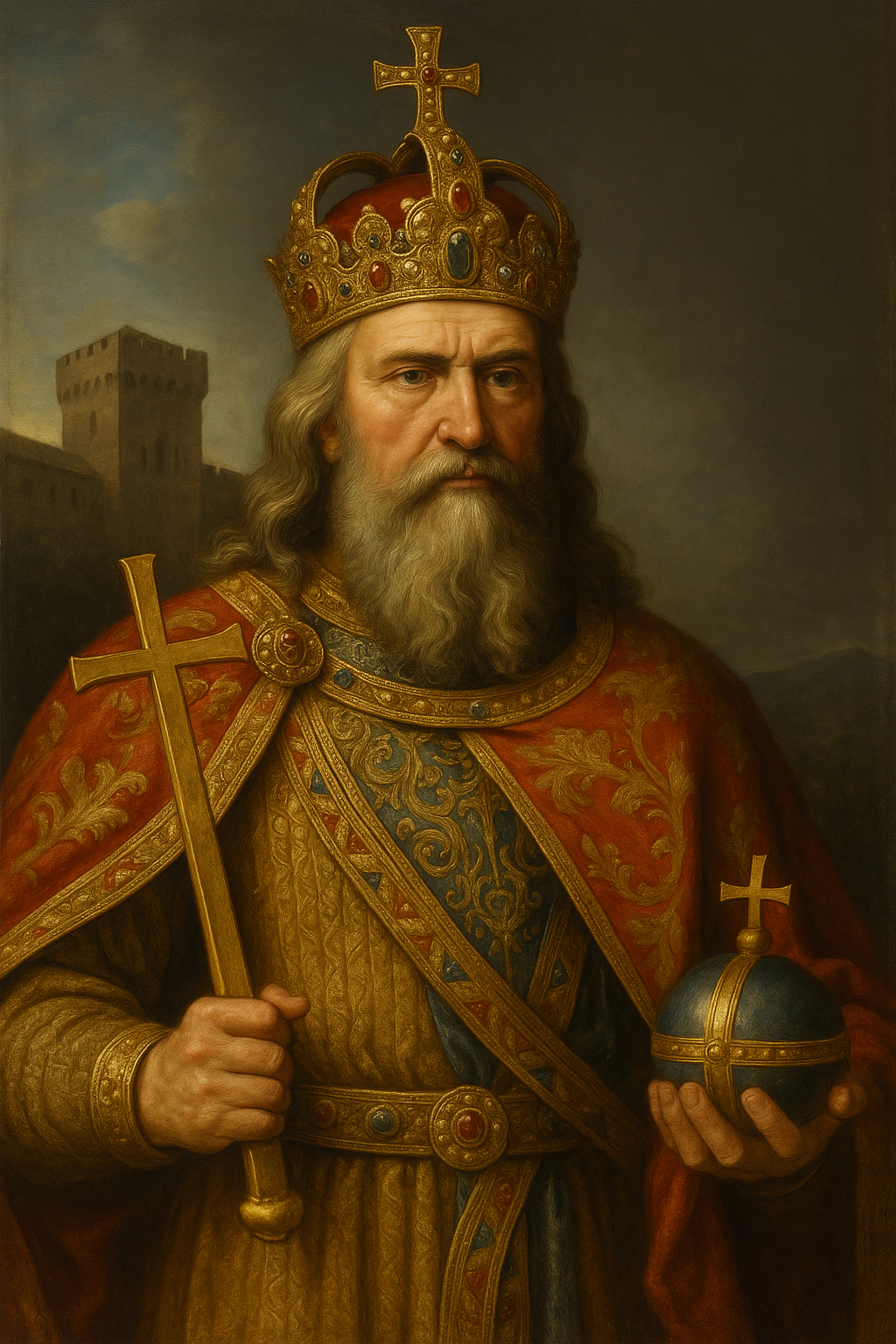
By Jenny Holly Hansen | WBN News | May 5, 2025
In the centuries following the fall of the Roman Empire, Europe was a fragmented mosaic of warring tribes, declining cities, and fading classical knowledge. But in the midst of this turbulence, one figure emerged to unite much of Western Europe under a single rule — a man whose legacy would shape the continent for generations to come. His name was Charlemagne.
Born around 742 CE, Charlemagne (also known as Charles the Great) was the son of Pepin the Short, the first king of the Carolingian dynasty. When Pepin died in 768, his kingdom was divided between his sons, Charlemagne and Carloman. But just three years later, Carloman’s sudden death left Charlemagne as sole ruler of the Franks, a powerful Germanic people centered in what is now France and western Germany.
The Warrior King
Charlemagne’s reign was defined by a relentless series of military campaigns that expanded his kingdom’s borders and secured his dominance. Over more than four decades, he led successful conquests against the Lombards in Italy, the Saxons in northern Germany, the Avars in central Europe, and even fought Muslims in Spain during a brief and costly campaign.
His wars were as much about faith as they were about power. Charlemagne saw himself not just as a king, but as a defender of Christendom. His battles often carried religious motives, particularly his long, brutal campaigns against the pagan Saxons, whom he forcibly converted to Christianity.
The First Holy Roman Emperor
Charlemagne’s most enduring title came on Christmas Day in the year 800. While attending mass at St. Peter’s Basilica in Rome, he was crowned “Emperor of the Romans” by Pope Leo III — a moment intended to signal the rebirth of the Roman Empire in the West.
This coronation marked the birth of what would later be called the Holy Roman Empire. While it was more symbolic than directly comparable to ancient Rome, it represented a powerful fusion of Germanic leadership, Christian faith, and Roman imperial tradition — an idea that would shape European politics for nearly a thousand years.
Charlemagne’s empire stretched from modern-day France and Belgium through parts of Germany, the Netherlands, Switzerland, Austria, and northern Italy. While it didn’t encompass all of Western Europe, it came closer than any other kingdom since the fall of Rome.
A Renaissance of Learning
Though he was reportedly illiterate until later in life, Charlemagne deeply valued education and intellectual revival. He gathered scholars from across Europe to his court at Aachen (in present-day Germany), launching what historians call the Carolingian Renaissance.
Under his direction, monasteries became centers of learning, classical texts were copied and preserved, and a standardized script — Carolingian minuscule — was developed, laying the foundation for modern European handwriting and record keeping.
He also issued legal reforms, established administrative systems, and promoted the spread of Christianity, building churches and supporting missionaries across his territories.
Legacy and Influence
Charlemagne died in 814 CE, having ruled for over 45 years. His empire was later divided among his grandsons, but the idea of a united Christian Europe — guided by a central emperor — persisted. Later rulers from Otto the Great to Napoleon invoked his legacy, and he remains a central figure in the histories of both France and Germany.
To this day, Charlemagne is remembered as a founder of medieval Europe. His name — Latinized as Carolus Magnus — lives on in the word “Carolingian,” in titles like Kaiser and Tsar (both derived from Caesar), and even in modern institutions like the Charlemagne Prize, awarded for efforts to unify Europe.
Charlemagne wasn’t just a conqueror. He was a king, a reformer, an emperor, and a visionary who helped lay the foundations for a new Europe — one built not on the ruins of Rome, but on faith, order, and the forging of common identity across diverse peoples.
Let’s Keep Talking:
Jenny is a business insurance broker with Waypoint Insurance.
She is also a business development consultant with Impresario Partners, helping Canadian Business expand overseas.
She can be reached at 604-317-6755 or jholly-hansen@wbnn.news. Connect with Jenny on LinkedIn at https://www.linkedin.com/in/jenny-holly-hansen-365b691b/. Connect with Jenny at BlueSky: https://bsky.app/profile/jennyhollyhansen.bsky.social
Let’s Meet Up:
Jenny Holly Hansen is a cohost with Chris Sturges of the Langley Impact Networking Group. You are welcome to join us on Thursday’s from 4pm to 6pm at: Sidebar Bar and Grill: 100b - 20018 83A Avenue, Langley, BC V2Y 3R4
TAGS: #Jenny Holly Hansen #Charlemagne #Charles the Great #Pepin #Carloman #Defender of Christendom



